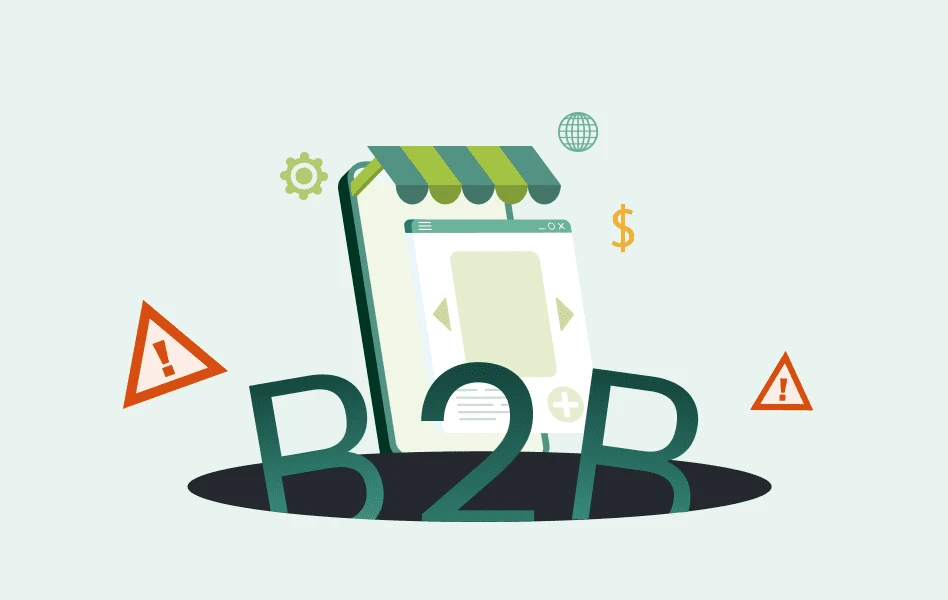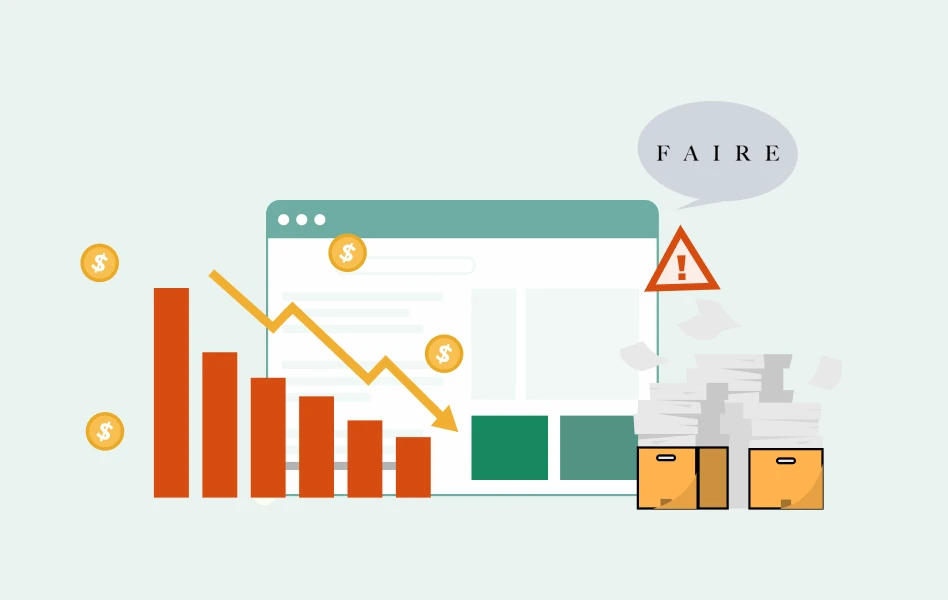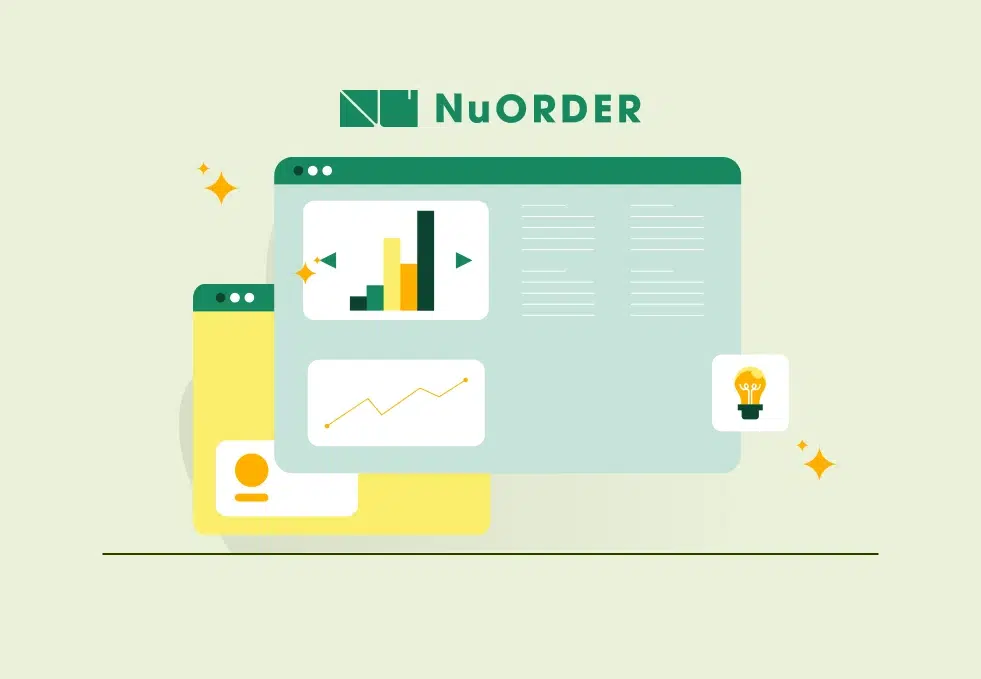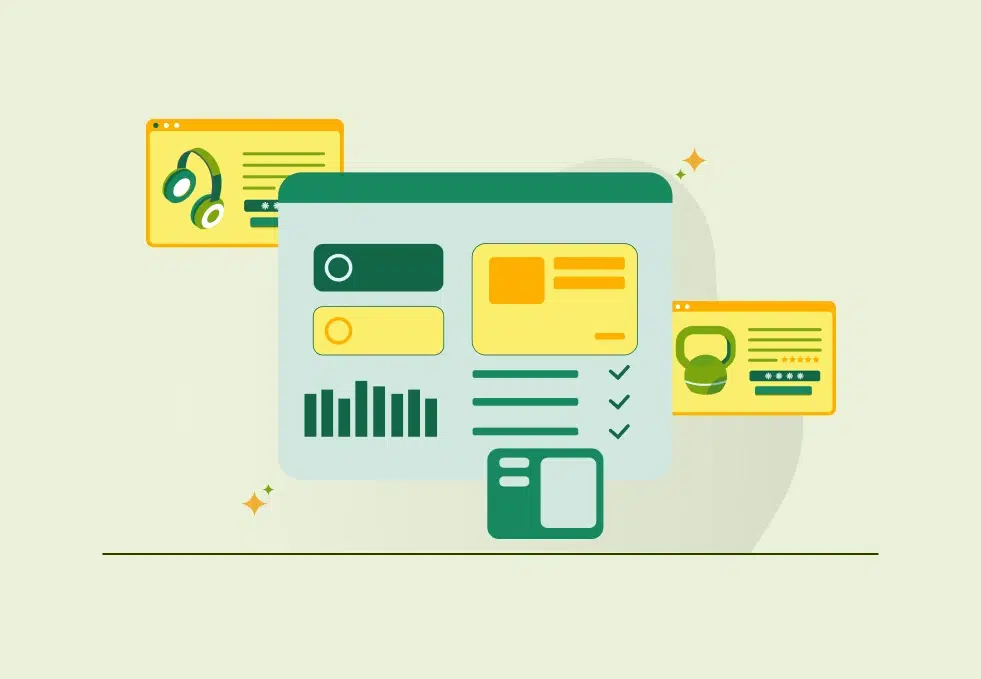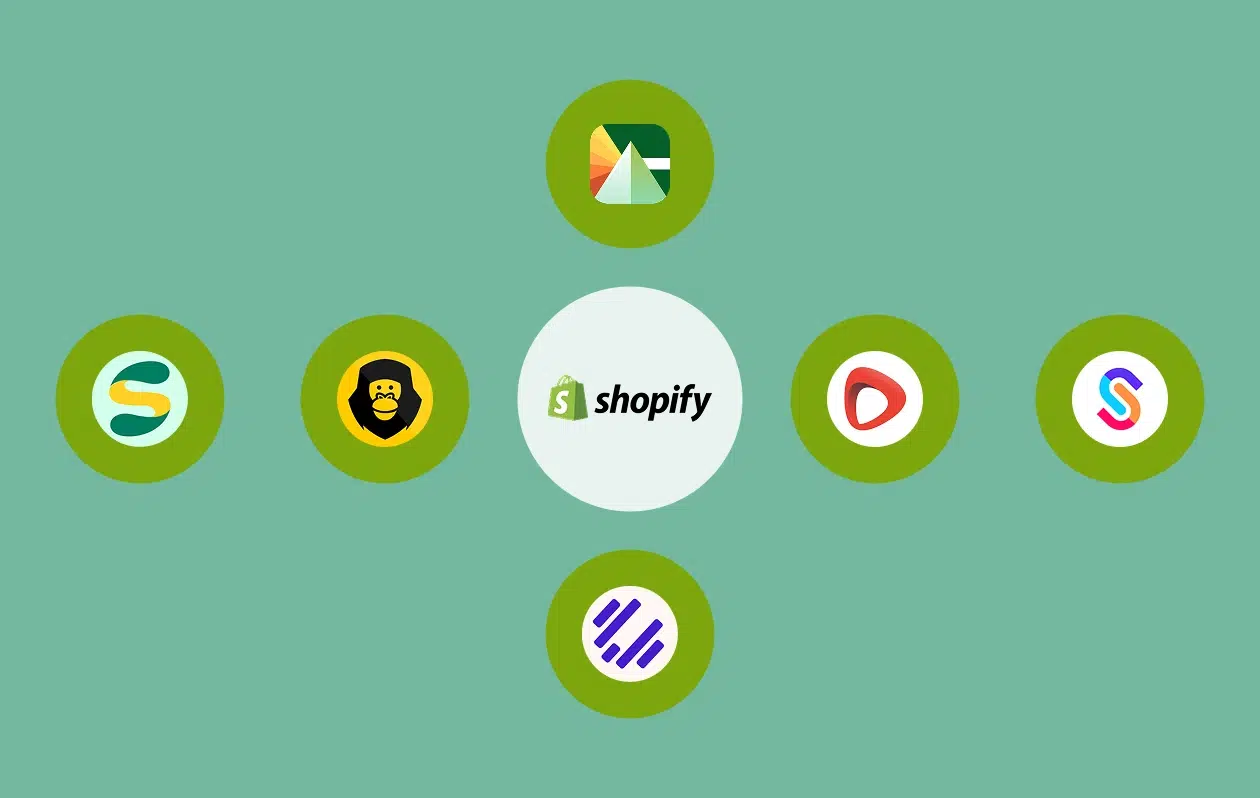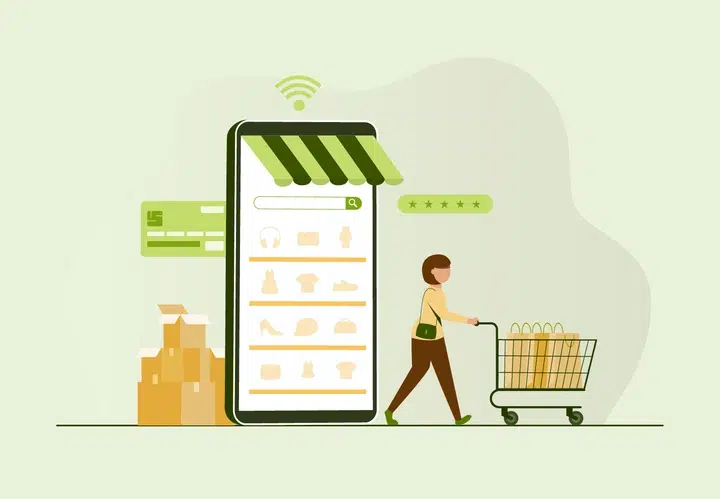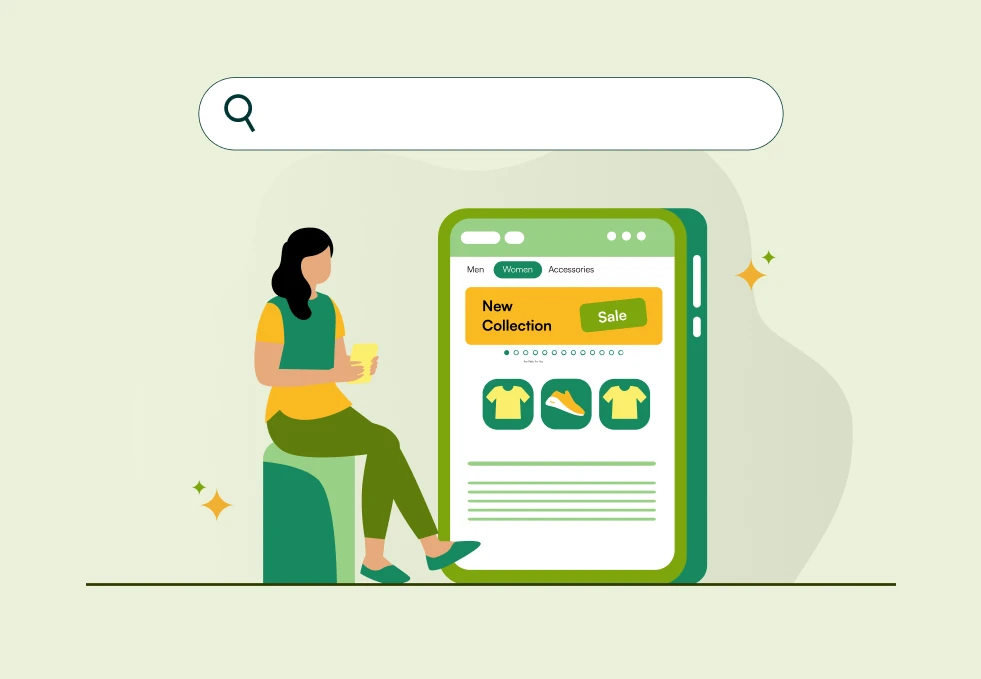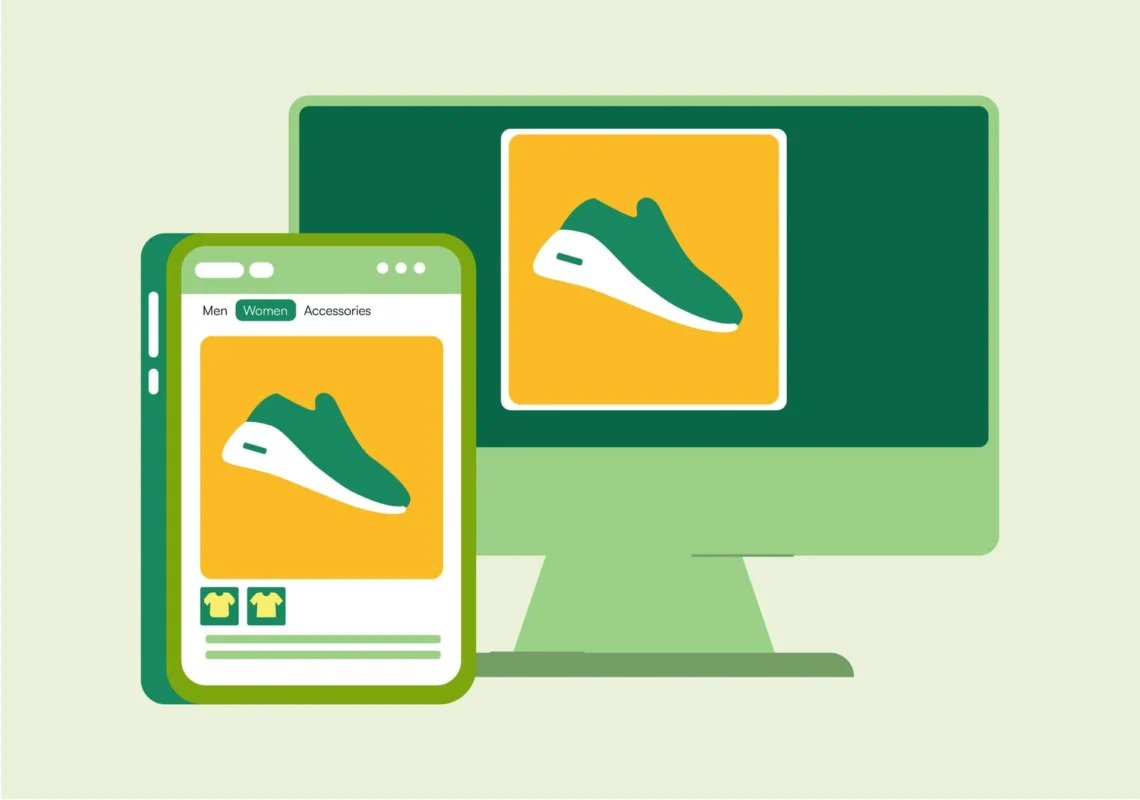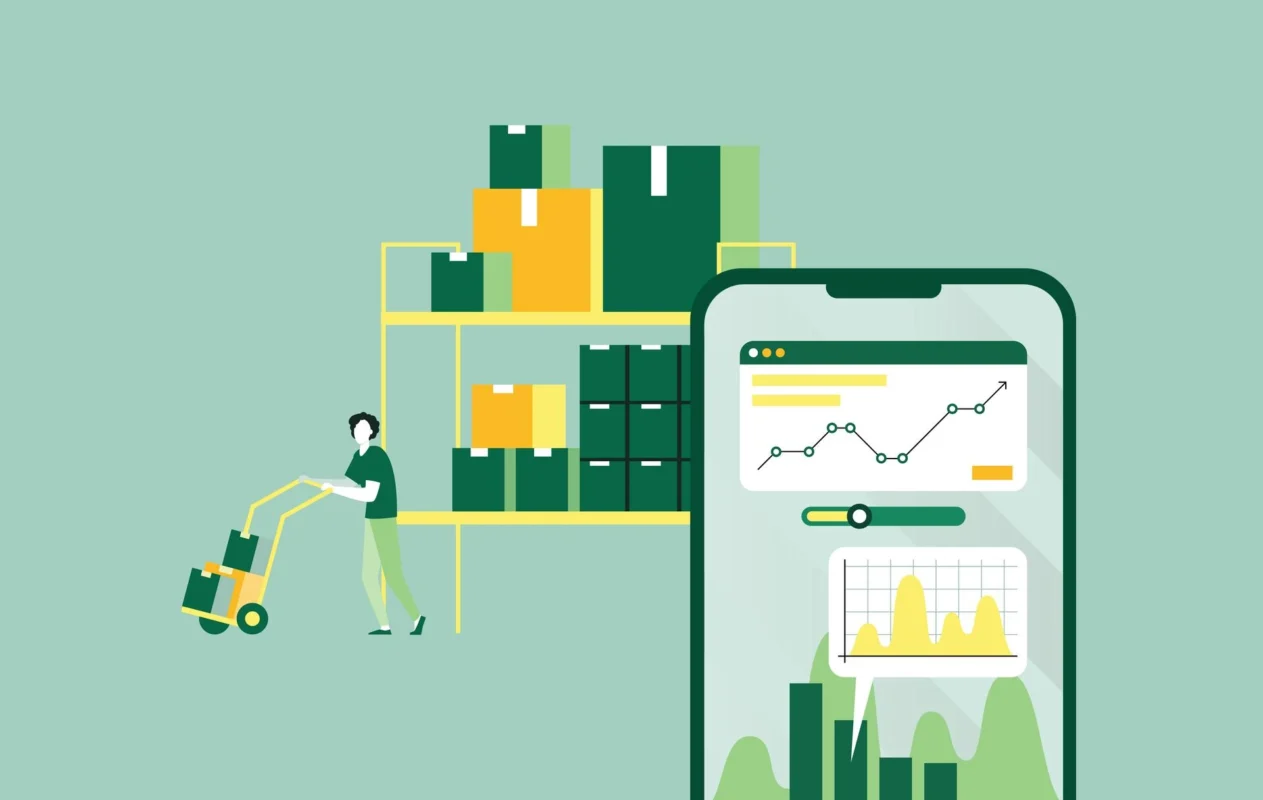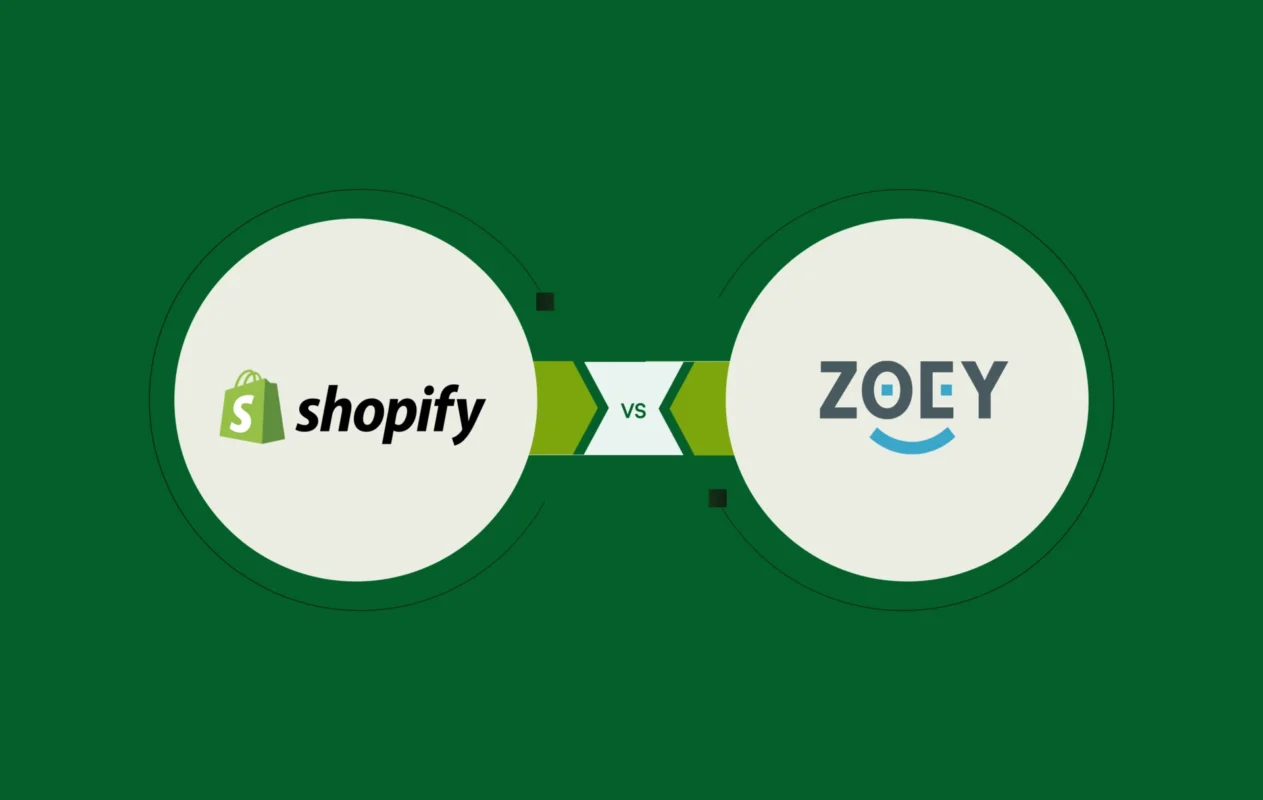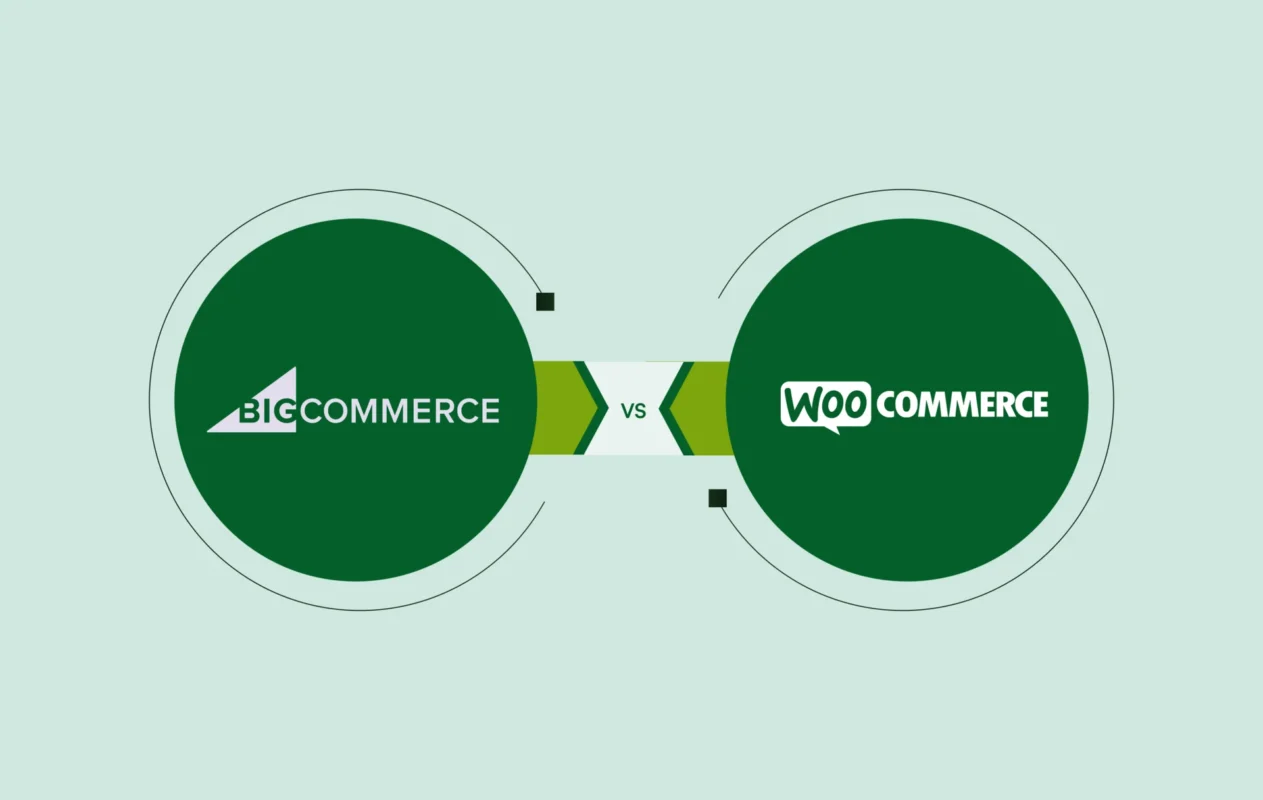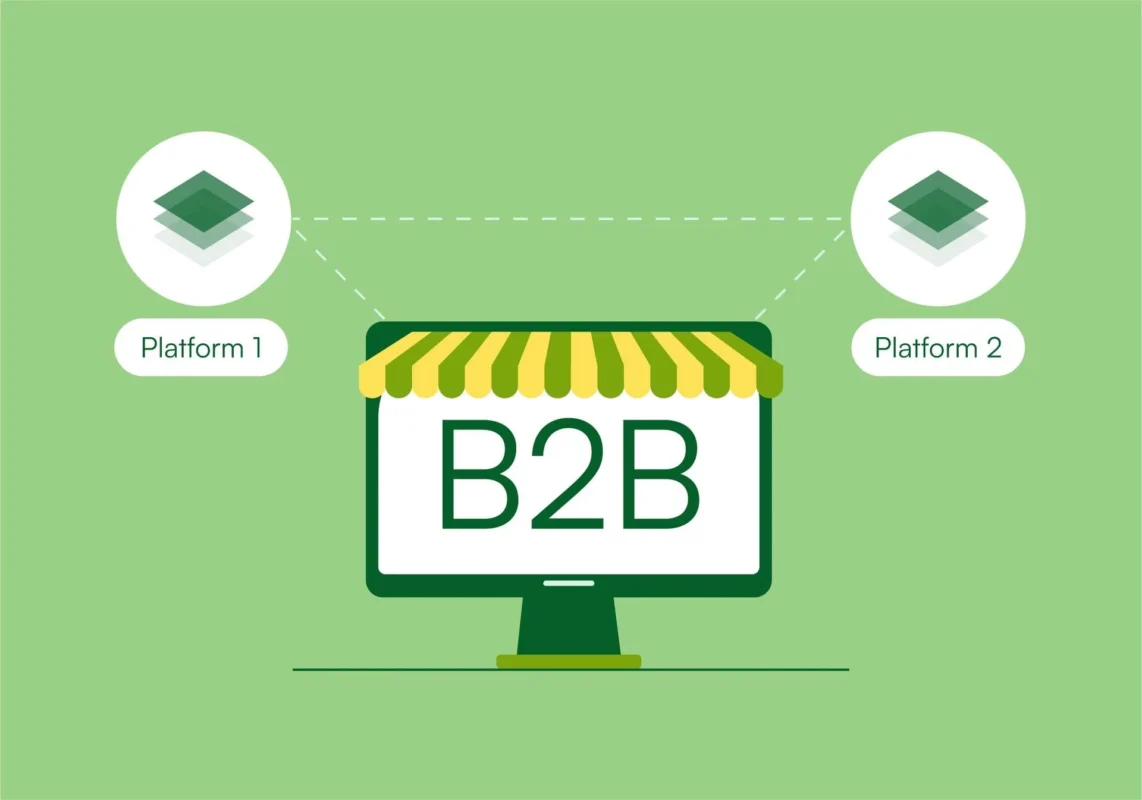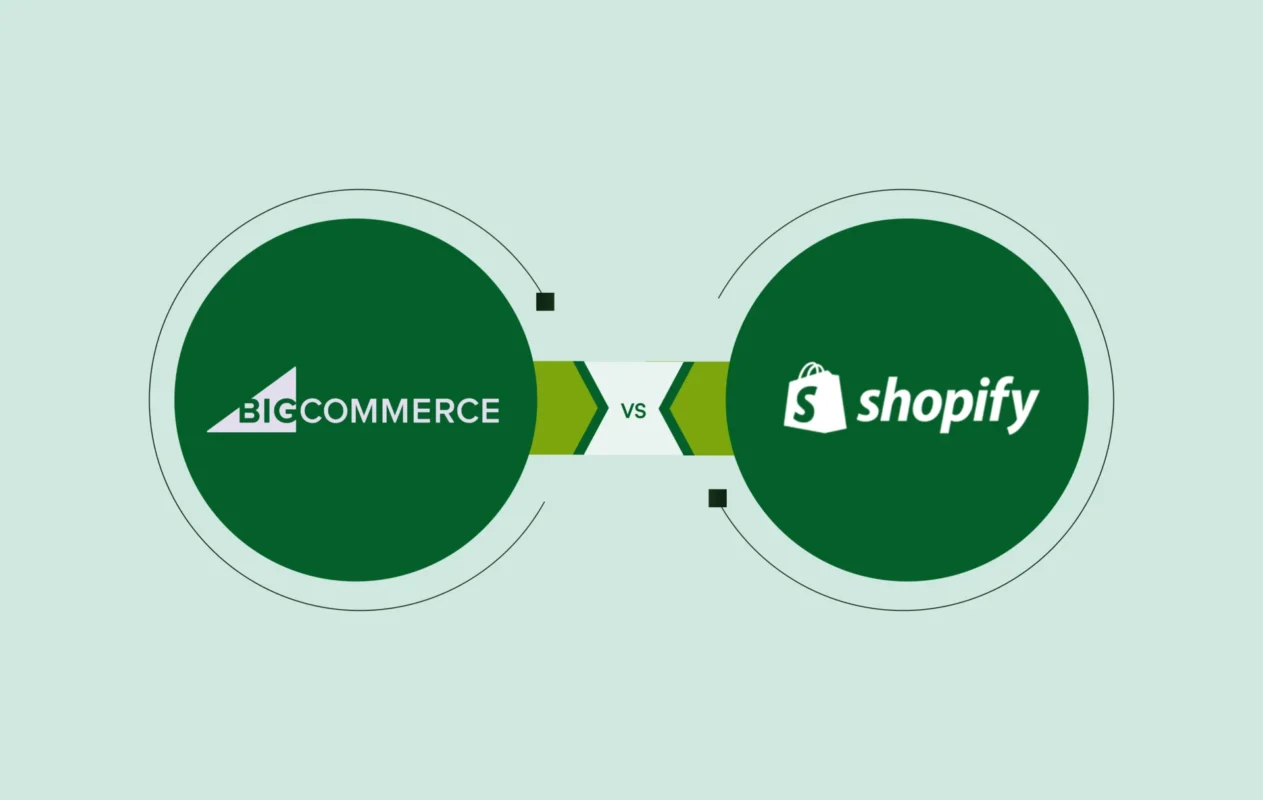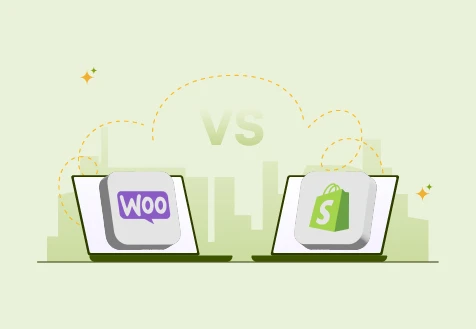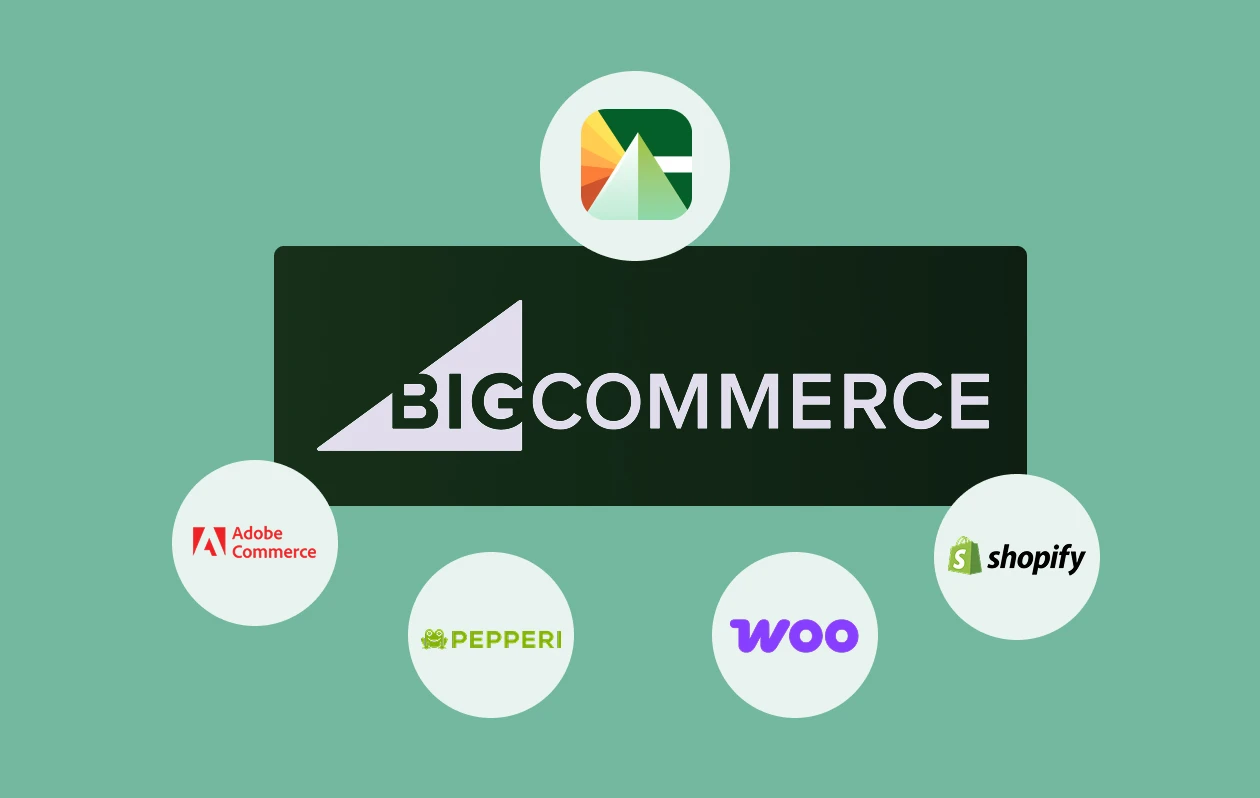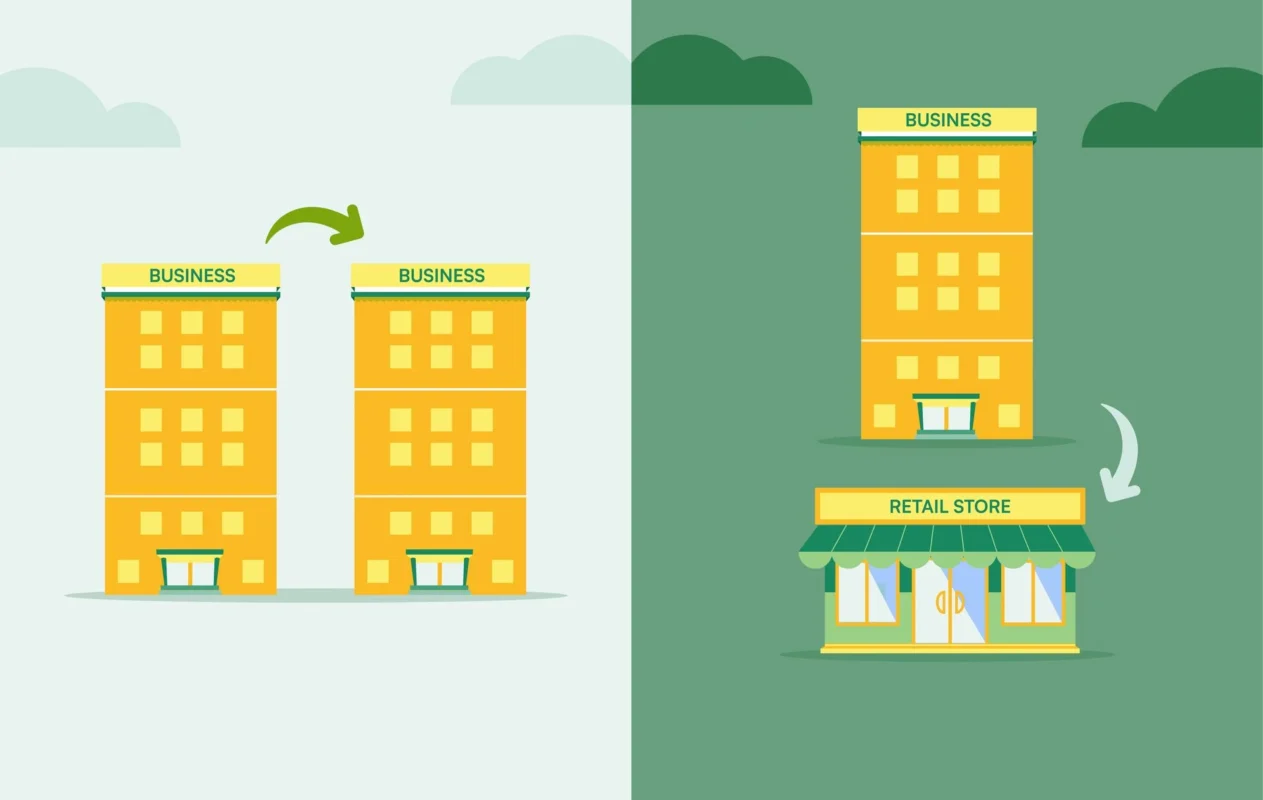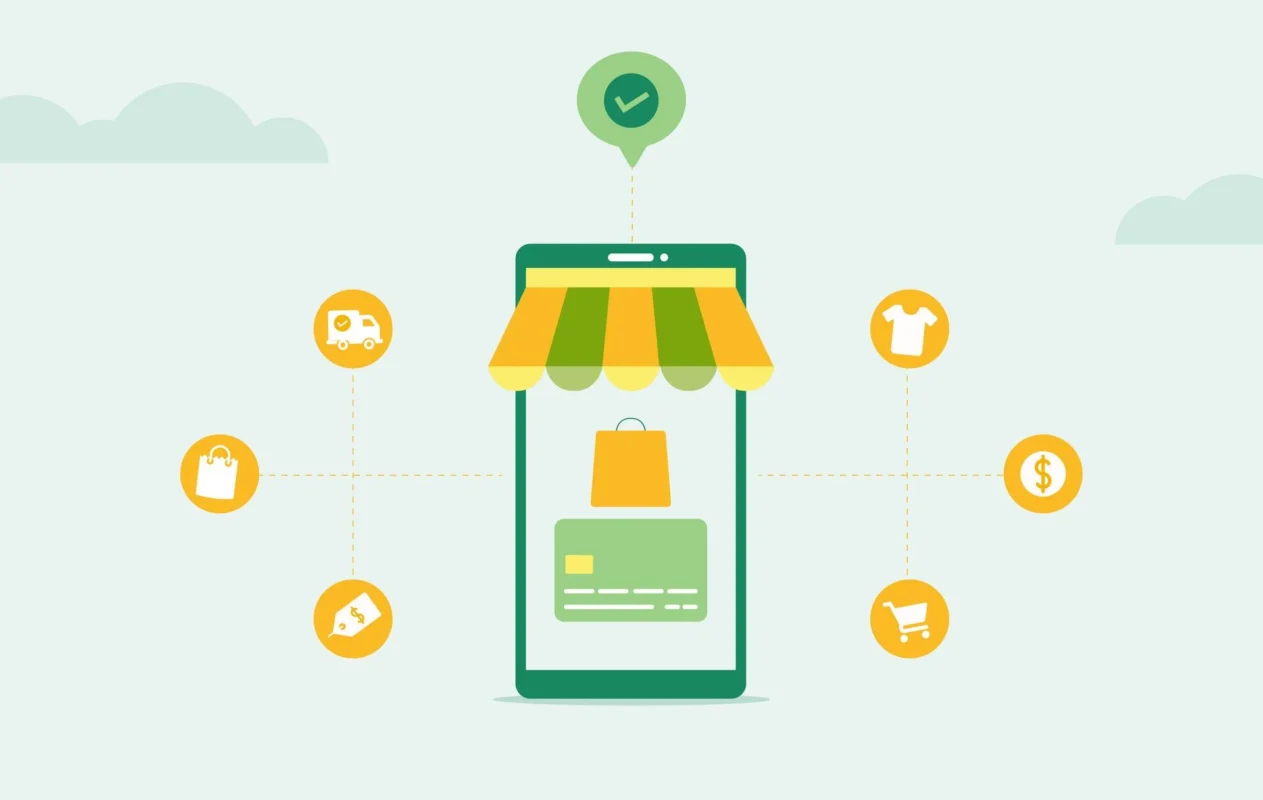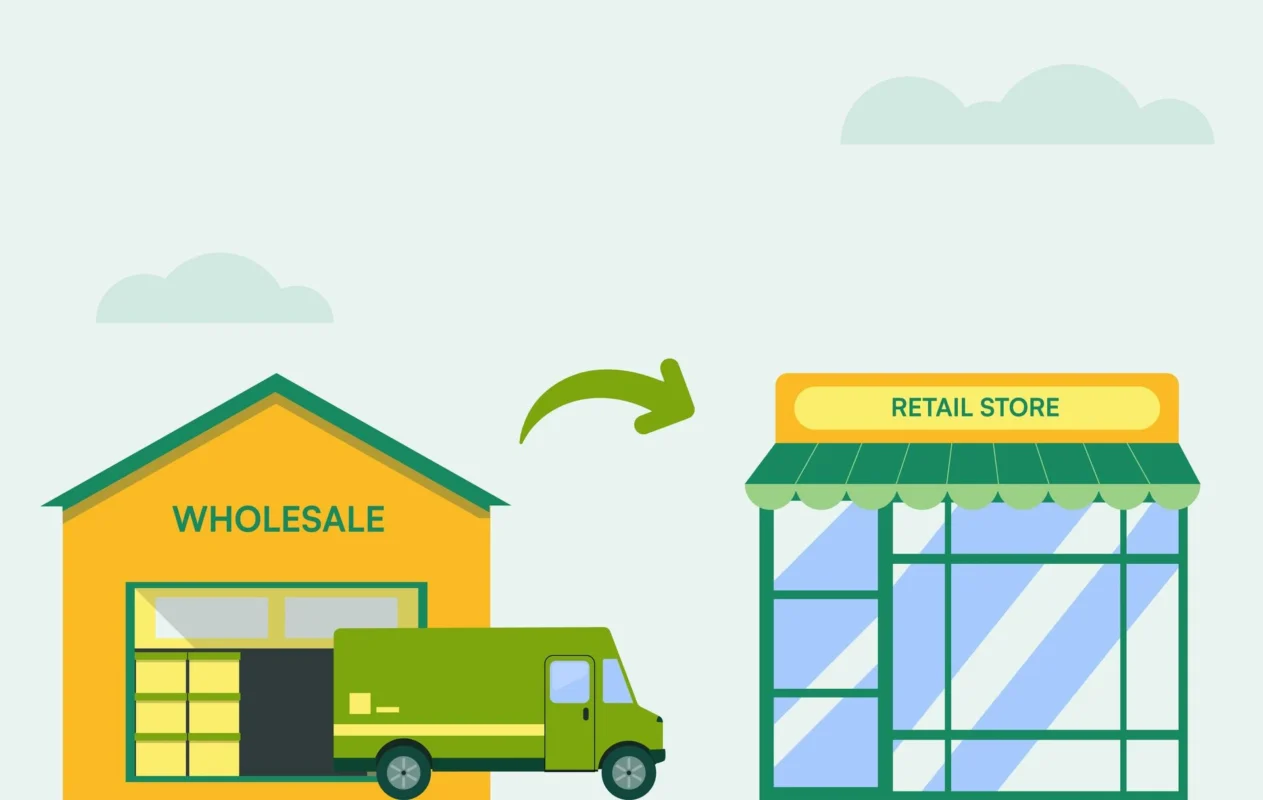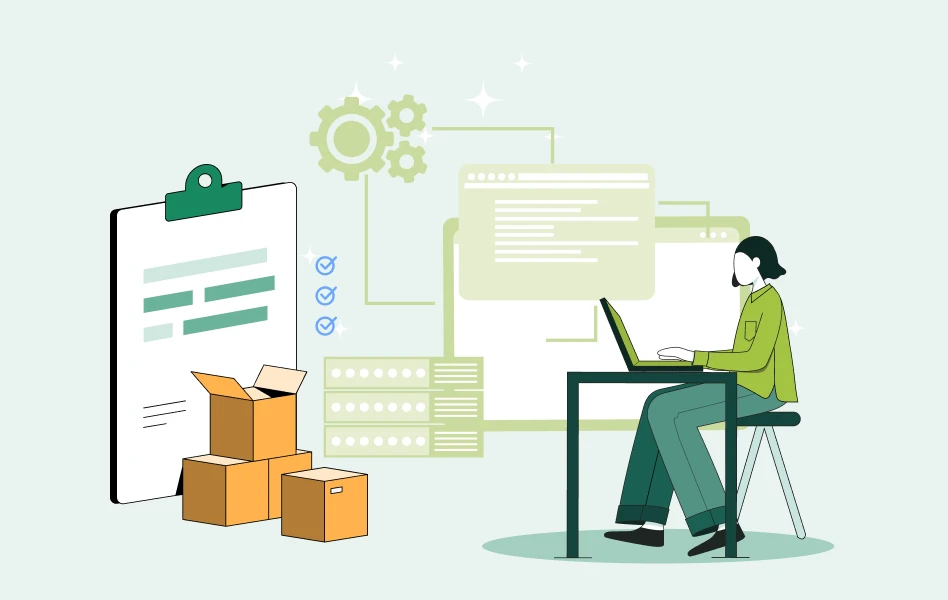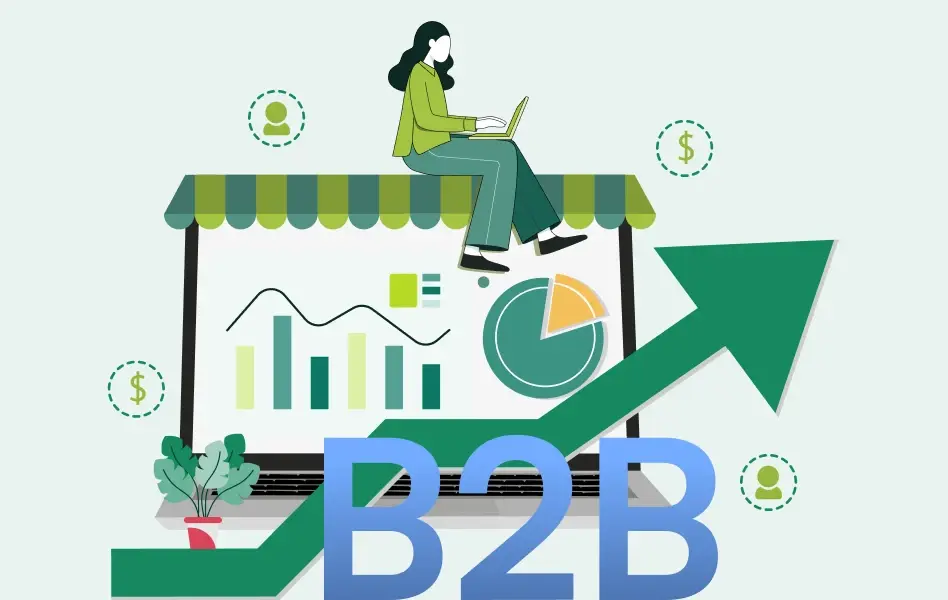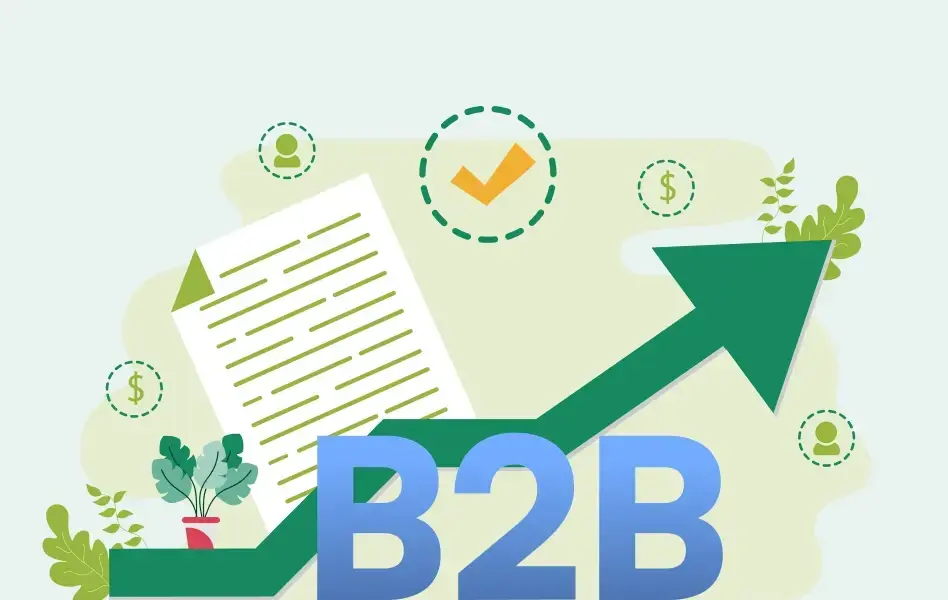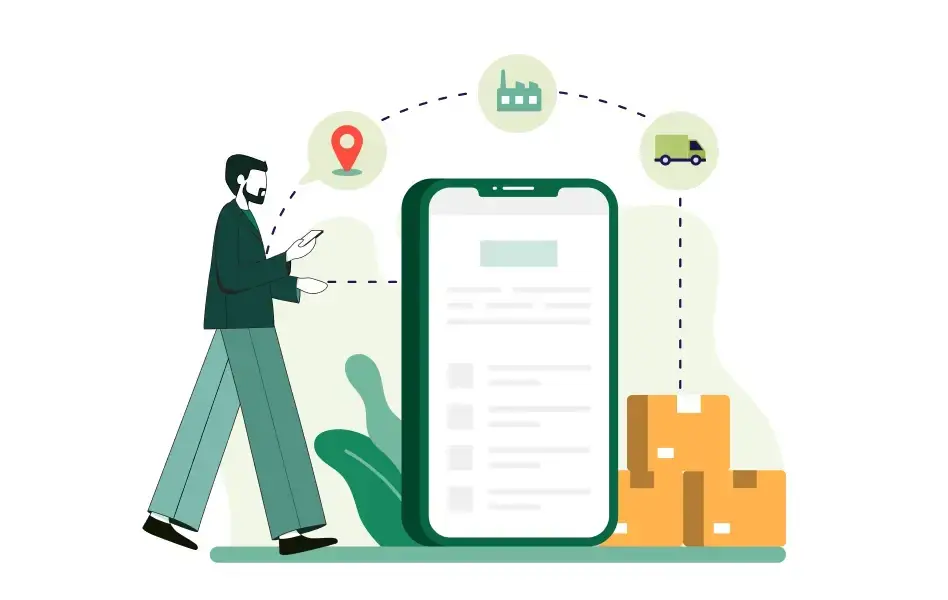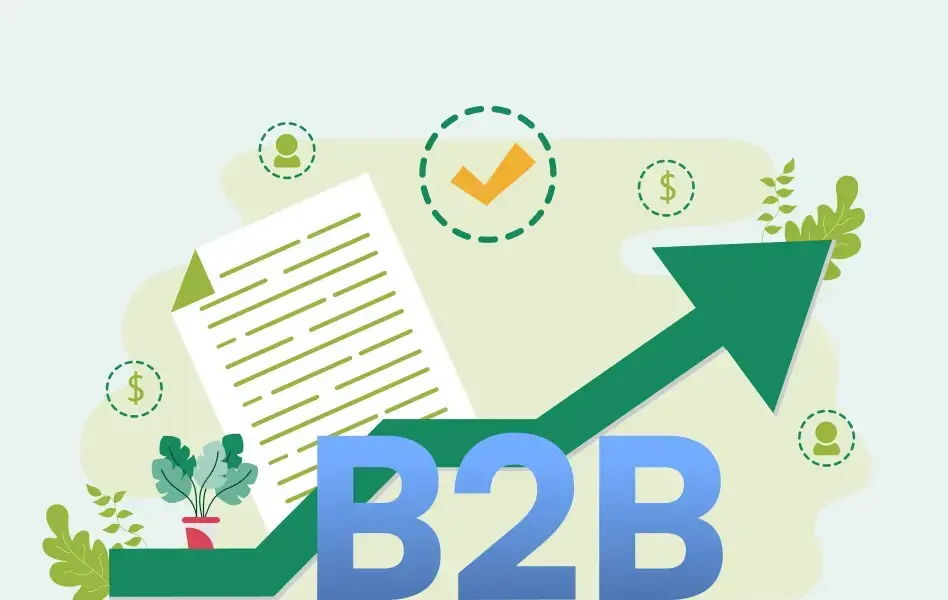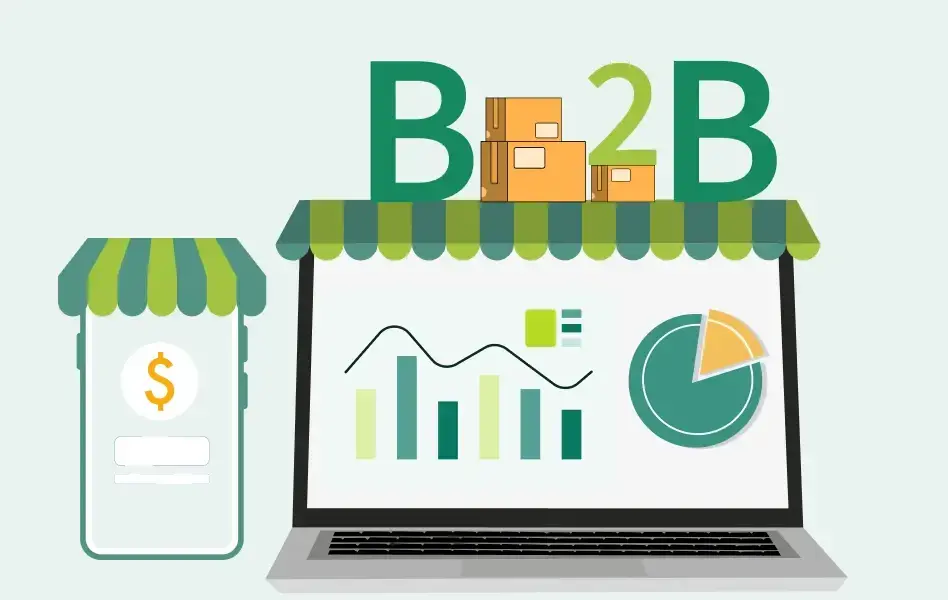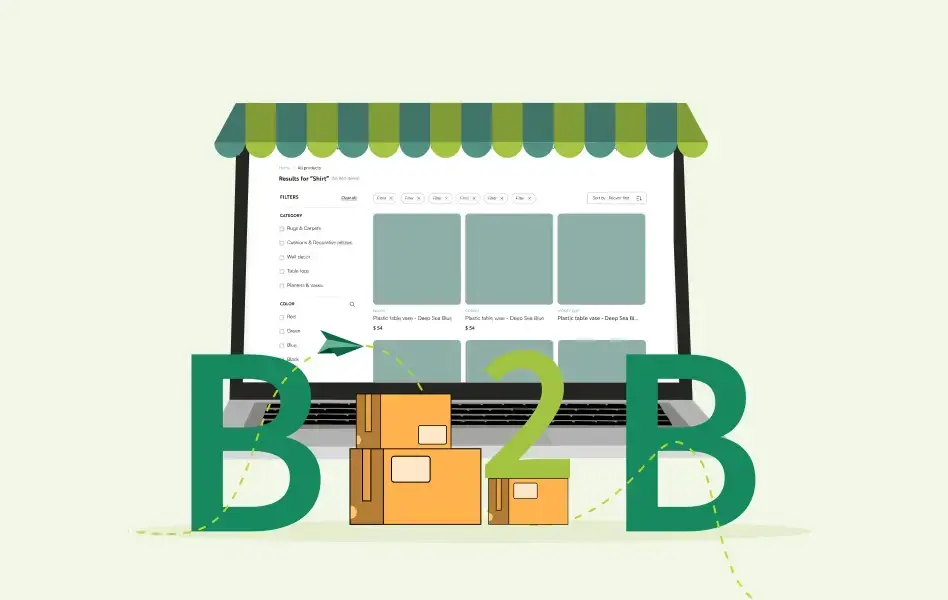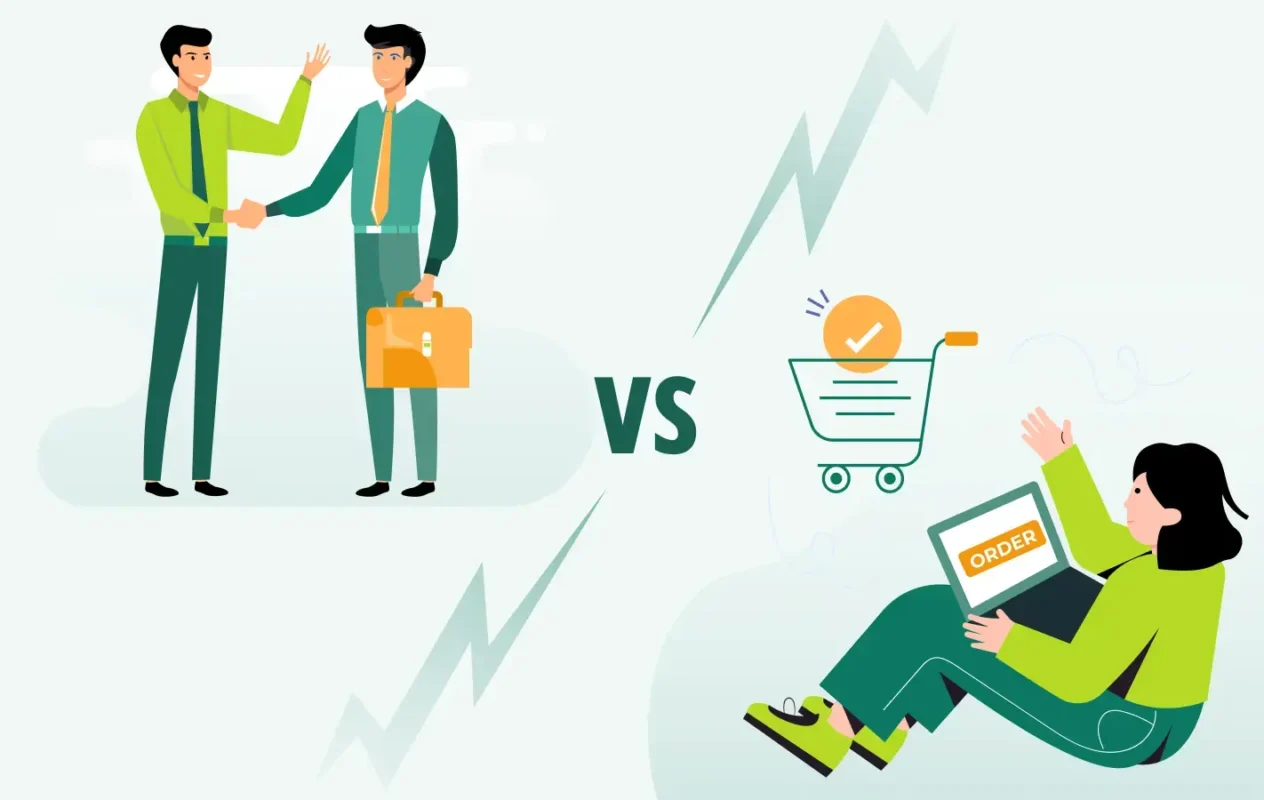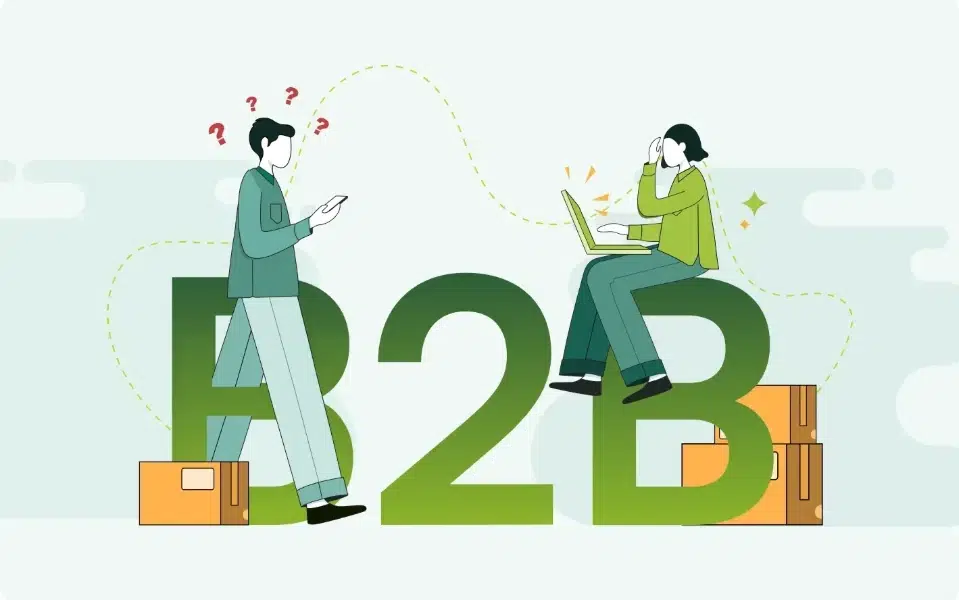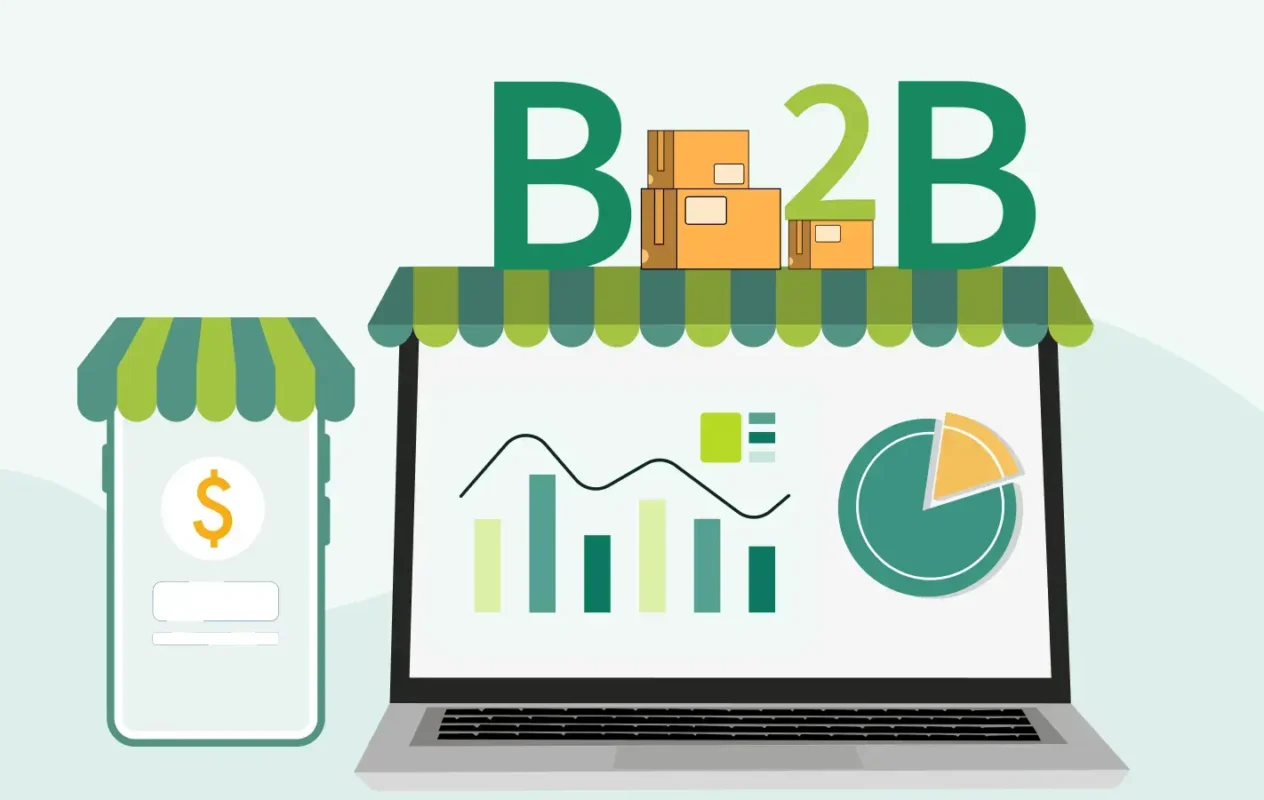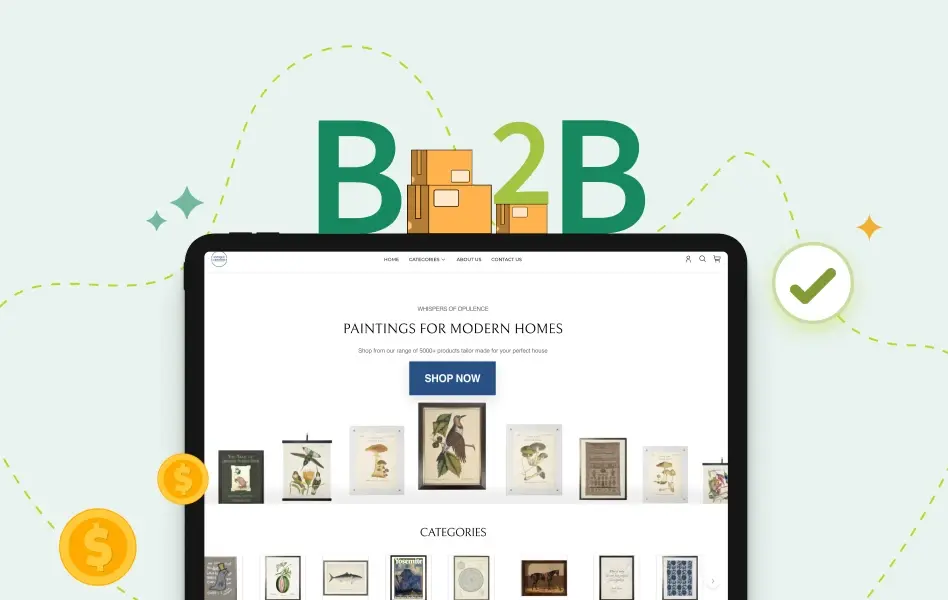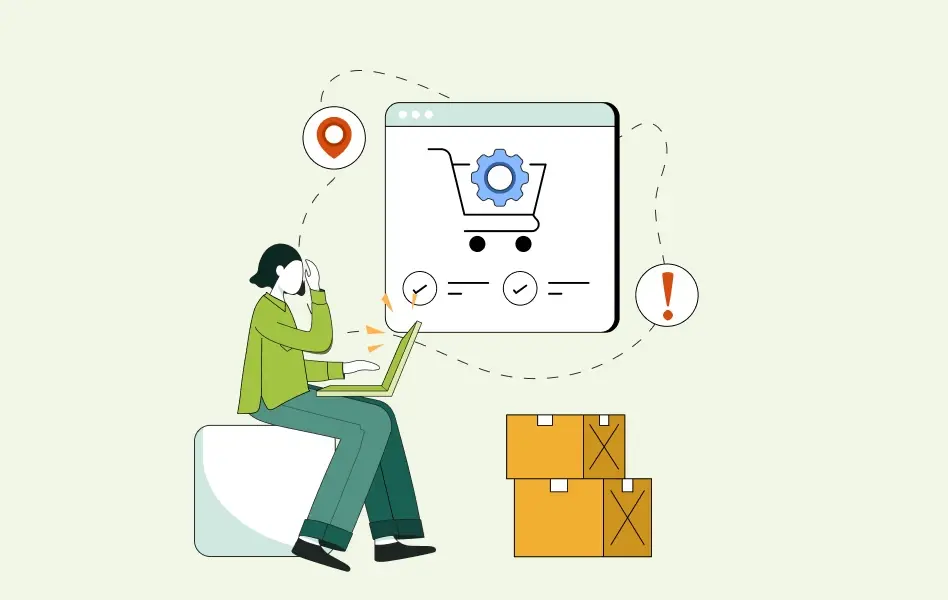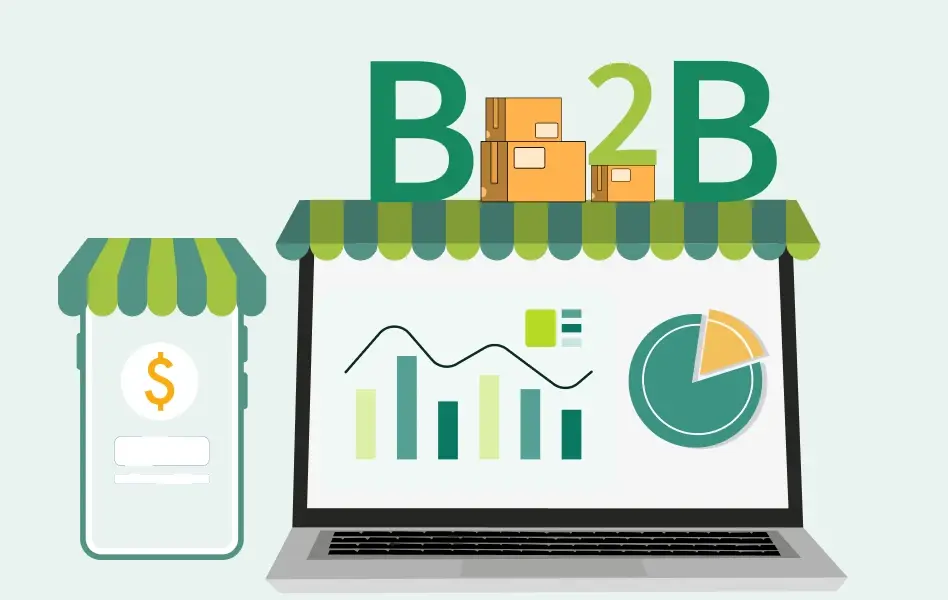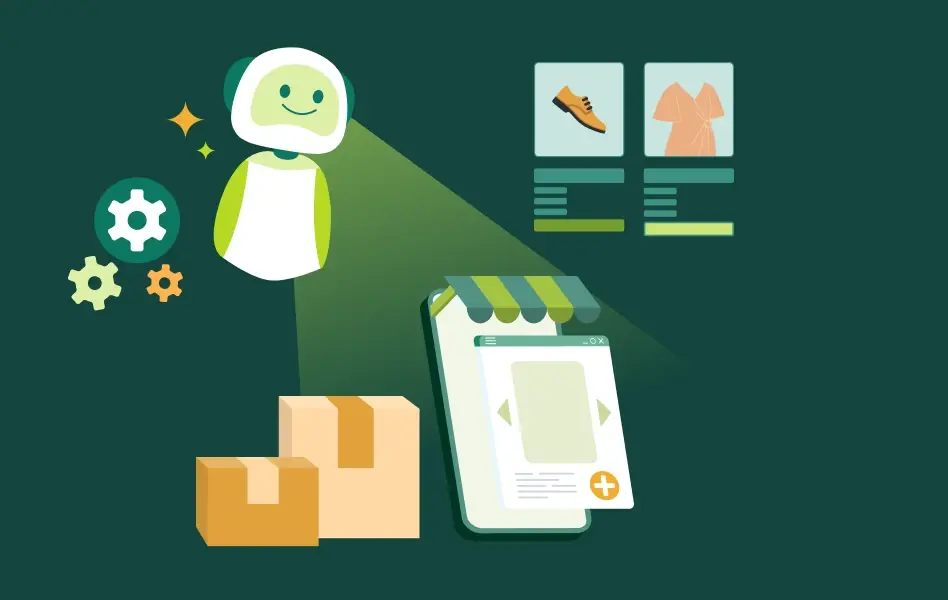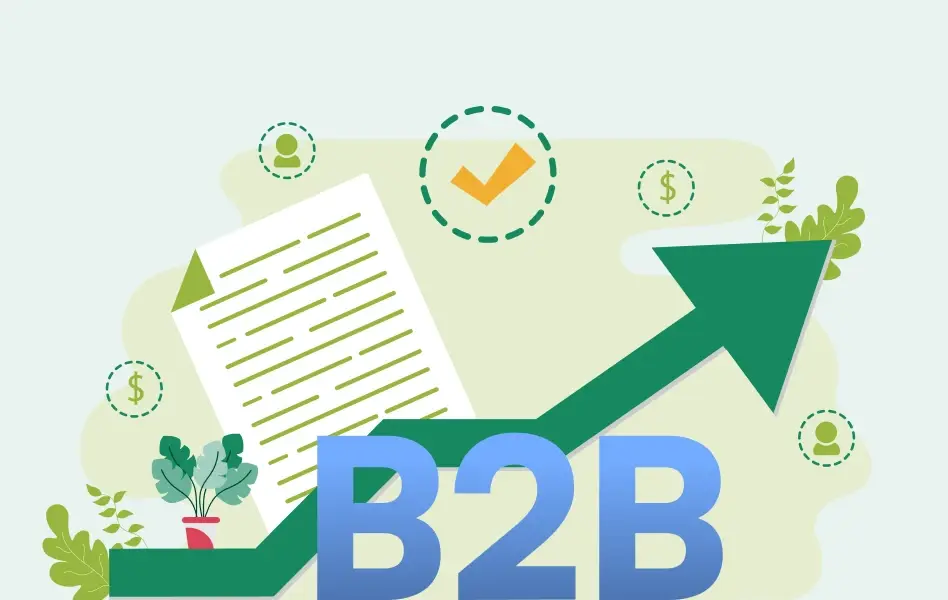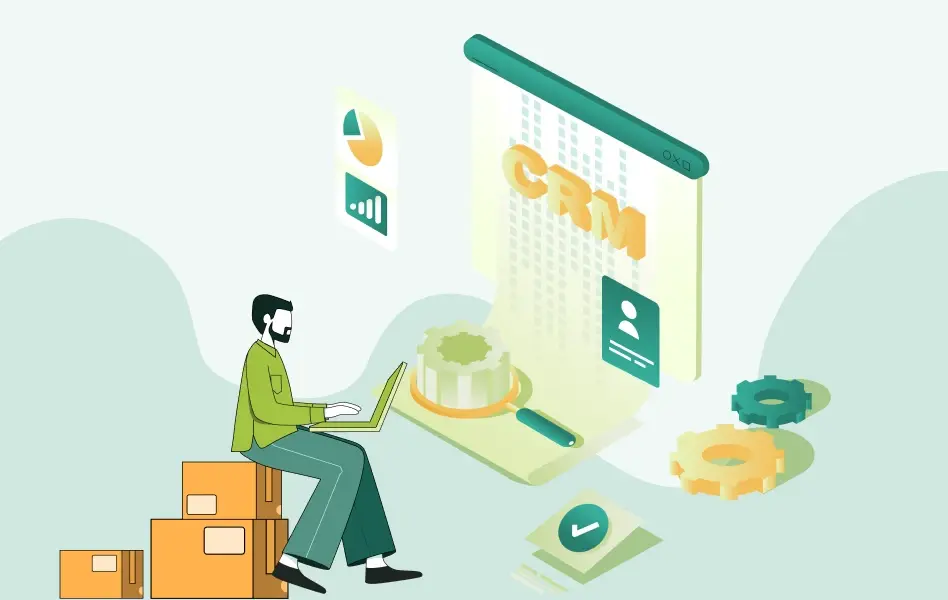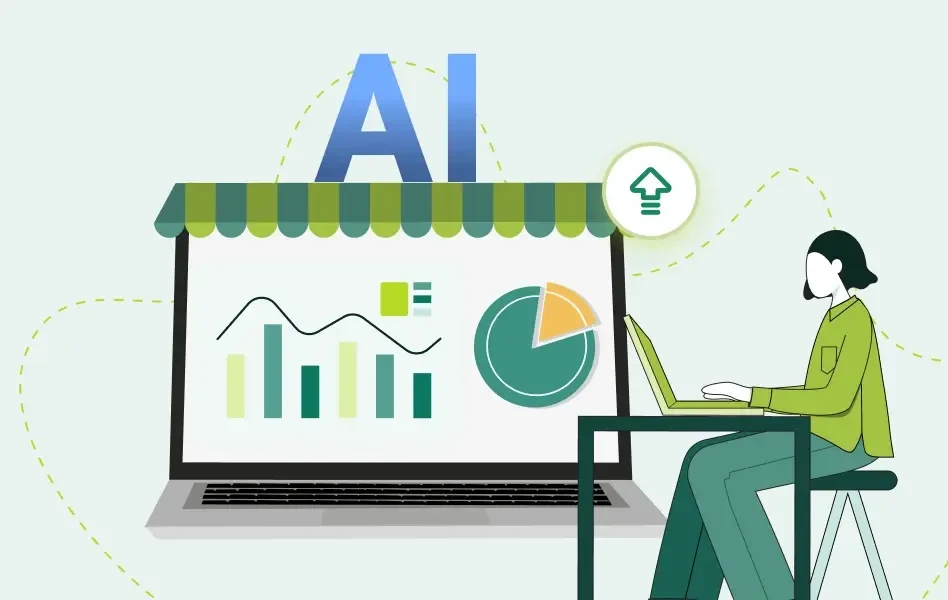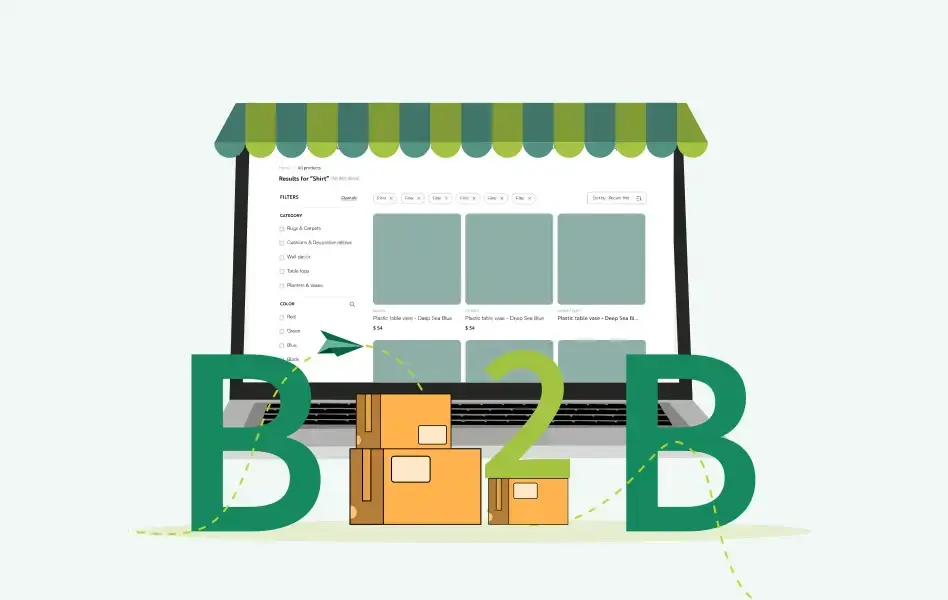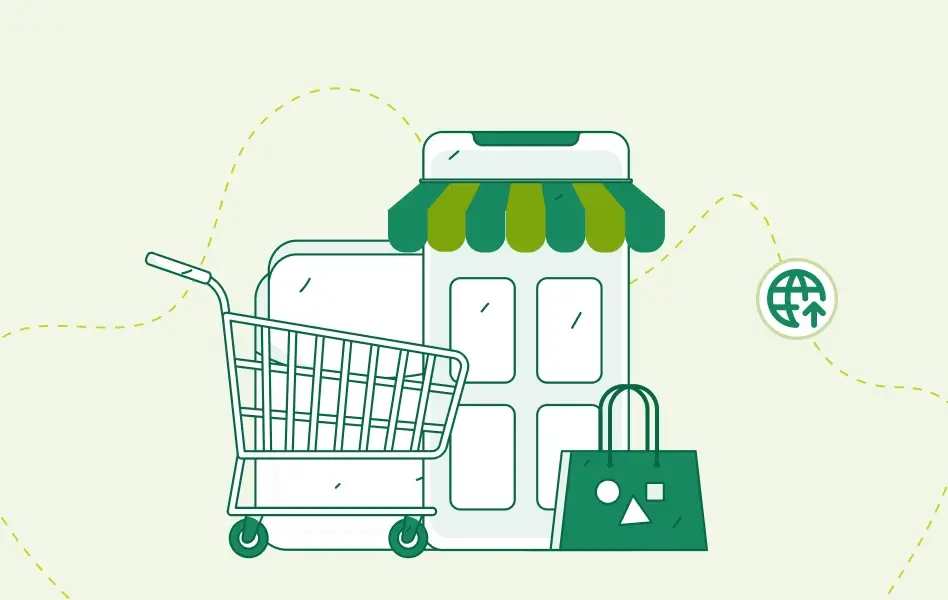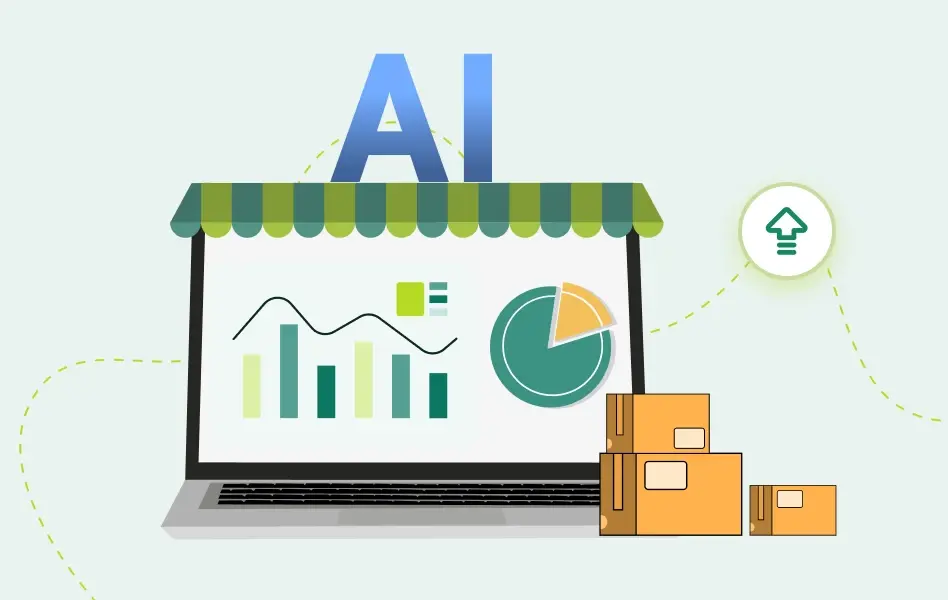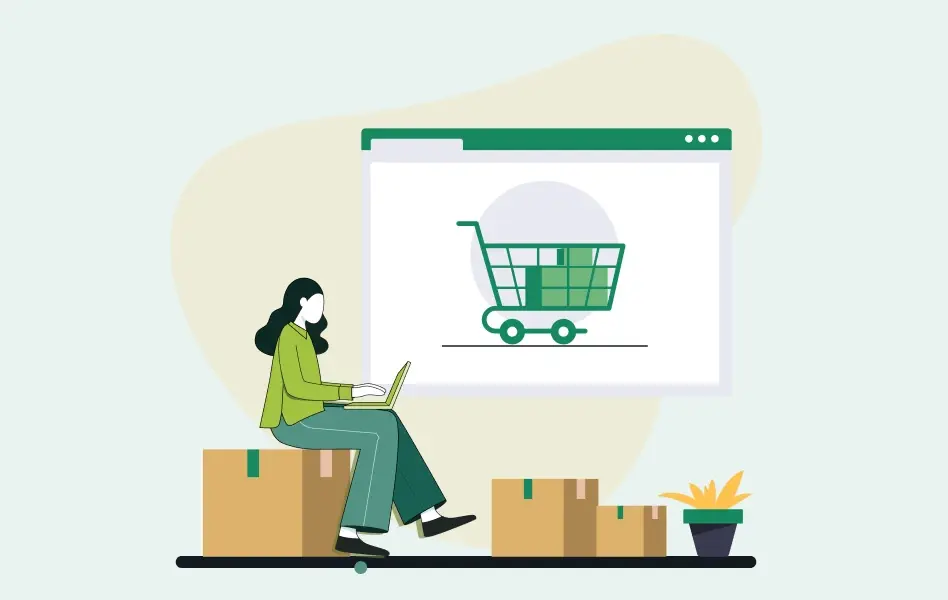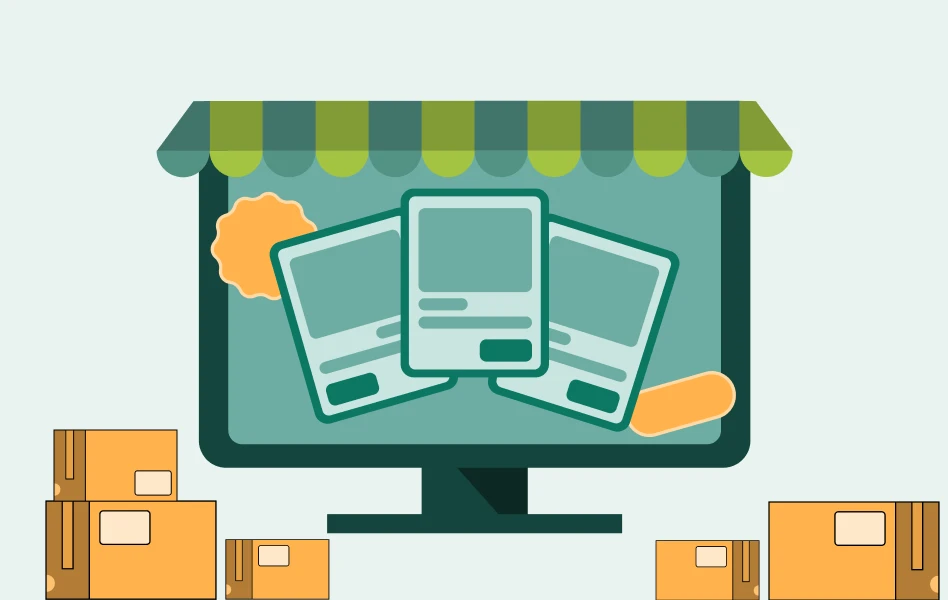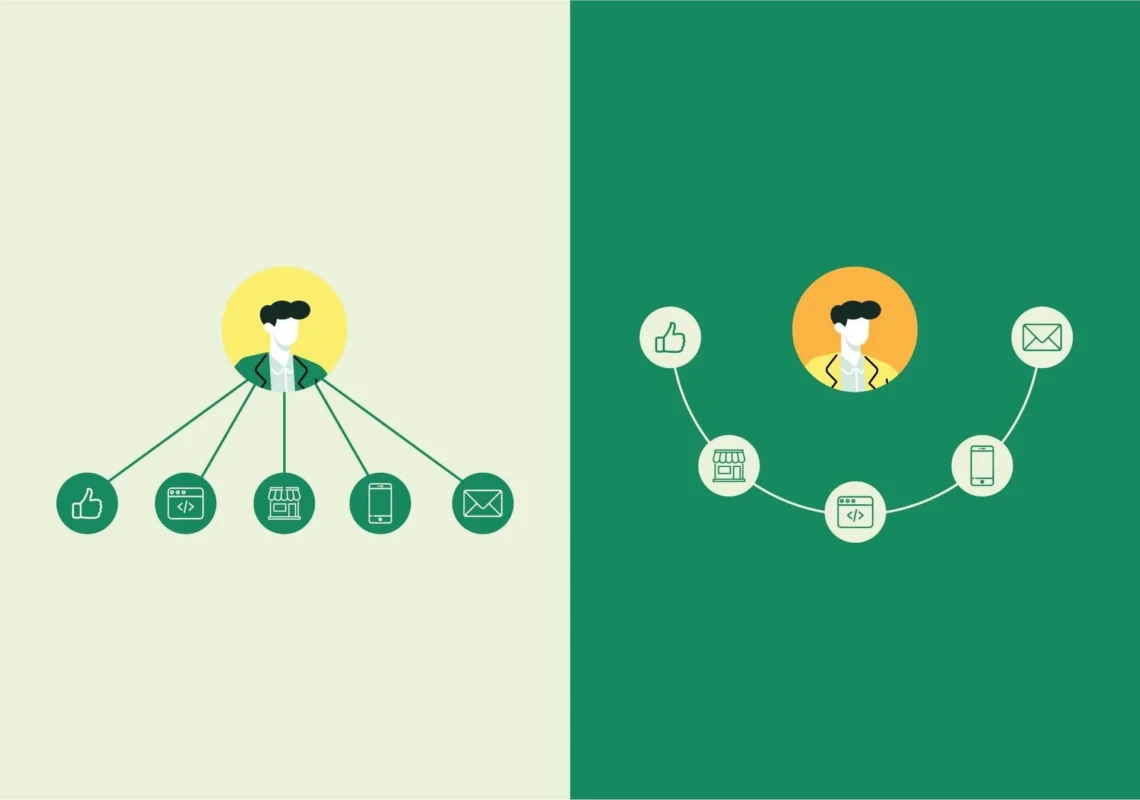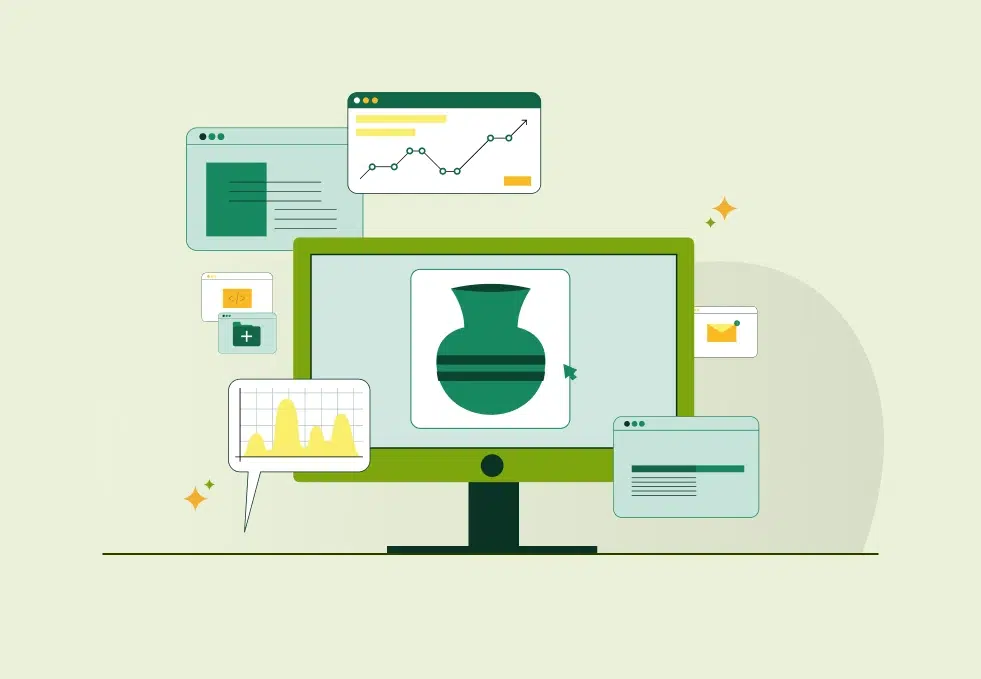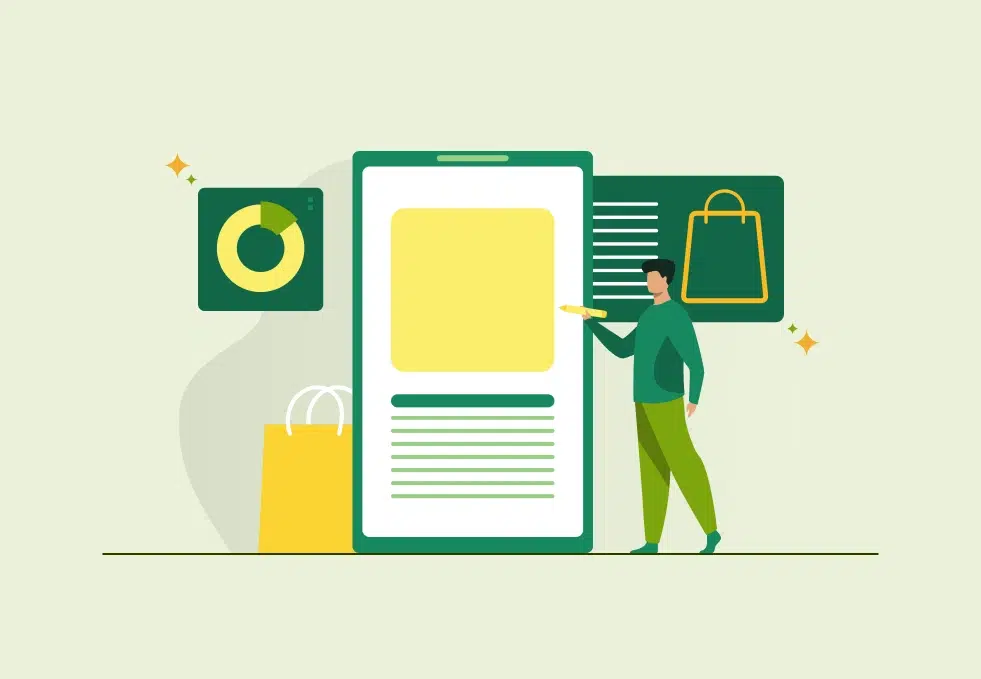Contents
- 1 B2B vs B2C ecommerce: Key differences
- 2 The pitfalls of building a B2B ecommerce website on a B2C ecommerce platform
- 3 Why choose WizShop by WizCommerce for your online wholesale needs
- 3.1 1. Tailored for B2B business dynamics
- 3.2 2. Provides a unified experience across channels
- 3.3 3. Built to handle complex product lines
- 3.4 4. Comes equipped with AI-enabled product and customer recommendations
- 3.5 5. Provides flexible checkout flows
- 3.6 6. Simplifies account management
- 3.7 7. Plays well with your existing software
- 4 The gist of it all
As the demand for online presence surged, many wholesale distribution businesses turned to B2C e-commerce platforms like Shopify, Magento, and WooCommerce to establish their B2B ecommerce websites. However, this transition came with its own set of challenges and compromises. Why? B2B is nuanced and different from B2C in many ways, and B2C e-commerce platforms are not built to meet these requirements. Let’s see how B2B ecommerce differs from B2C ecommerce.
B2B vs B2C ecommerce: Key differences
| Point of differentiation | B2C | B2B |
| Buying cycle & decision-making | Short buying cycles, impulsive, emotion-driven purchases. | Longer cycles with multiple stakeholders and approvals. |
| Pricing & payment structure | Fixed, transparent pricing with simple payments (e.g., credit cards). | Flexible, negotiable pricing with complex terms (e.g., net 30, bulk discounts). |
| Customer experience expectations | Engaging, intuitive design with fast checkout and mobile-first experience. | Efficiency-focused with bulk ordering, custom catalogs, and ERP integration. |
| Order Volume & Frequency | Smaller, infrequent purchases with variable order sizes. | High-volume, recurring orders needing automated reordering and tracking. |
| Personalization & data management | Personalization is limited to browsing history, preferences, and targeted recommendations. | Highly personalized experiences with custom catalogs, pricing tiers, and purchase history-driven suggestions for each customer. |
Now that we have discussed how different the worlds of B2B and B2C are, let’s dive right into why platforms made for B2C are nothing but trouble when it comes to molding them to suit B2B requirements.
The pitfalls of building a B2B ecommerce website on a B2C ecommerce platform
1. You need plugins for everything!
Despite their initial appeal, the actual cost of implementation with B2C ecommerce platforms skyrockets because of the need for numerous plug-ins. Several critical (and basic) features required for B2B ecommerce website operation are absent from these solutions, making customization and integration imperative.
These additional components increase implementation and management costs and development time. On top of that, they introduce risks of technical issues and a compromised user experience. Here are some of the features that most B2C ecommerce platforms are missing:
2. Developers have limited wholesale context
Most developers are not familiar with how wholesale works. Retail is straightforward, so developers usually do fine with Shopify or WooCommerce.
However, most wholesalers struggle with finding the right developer. They go through 2-3 developers before finding the right fit. Why? Most developers don’t understand wholesale, and it takes extensive education.
Faced with the need for a quick ROI, many developers abandon the learning curve. If you’re lucky, getting your B2B ecommerce website up and running might take 6-8 months. But for many, it’s more like 12-24 months or even longer.
3. Cost of customization and maintenance is through the roof
Building a B2B ecommerce website on a B2C ecommerce platform means shelling out big bucks for custom development, plugins, and other necessities. Even if platforms seem reasonably priced initially, most wholesalers don’t realize the extra costs for plugins and the time needed to launch.
As things progress, they’re hit with a shock of a bill. With 10-15 plugins, subscription costs shoot up, and implementation can easily cost tens of thousands of dollars. Plus, there are ongoing fees for developer support to keep the B2B ecommerce website running smoothly.
4. Every tweak needs developer intervention
The more plugins and custom development your B2B ecommerce website has, the harder it is to keep up with changes. Every tweak demands developer intervention, which often comes with additional fees. And if your developer isn’t responsive, you’re left stranded.
5. Product management is a struggle
B2C ecommerce platforms struggle with handling extensive SKUs and customizable products. Unlike B2C businesses with limited product lines, wholesaler distributors deal with thousands of SKUs.
Additionally, many offer customization options. Imagine a home furnishing item with ten sizes, ten frame options, and three finishes – we are talking about over 300 variants of a single product here.
While B2C platforms attempt to manage this through variants, maintaining thousands of SKUs for a single item becomes overwhelming. Faced with this complexity, most wholesalers scale back options on their B2B ecommerce websites. Consequently, even after launching the website, most orders still come through calls and emails.
So, what we’re saying is—why settle? Switch to a B2B ecommerce platform that is custom-designed to suit your needs and preferences. WizCommerce’s B2B ecommerce platform is everything you need to grow and scale your online wholesale business. Let’s see why.
Why choose WizShop by WizCommerce for your online wholesale needs
Check out the website we made for Antique Curiosities.
1. Tailored for B2B business dynamics
WizShop is meticulously crafted to cater exclusively to the demands of B2B wholesale distribution. Every aspect of our B2B ecommerce platform is designed with the unique workflows and requirements of wholesale distribution in mind.
a) Customizable price lists
WizShop allows you to assign specific price lists to individual customers or customer groups. With this functionality, each customer group only sees the applicable price list.
b) Showcase products without login
Antique Curiosities struggled with a login-only website and could not showcase products without revealing pricing—a significant barrier. With WizCommerce, they can securely display their full product line without the need for customer logins.
c) Personalized buying experience
Harnessing the power of AI, WizShop delivers a personalized buying journey for each customer. Through AI-based recommendations, buyers get tailored product suggestions, enhancing customer engagement and driving conversions.
d) Downloadable product presentations
In B2B workflows, buyers may need to download product presentations to have internal discussions or keep records. They might also need to send product presentations to end buyers, let them download their orders/ product data in an Excel format, and more. All this and more can be done easily with WizShop.
e) Comprehensive information access
Wizshop puts all essential information at the buyers’ fingertips —from order history and invoices to real-time order updates. Your B2B customers have access to comprehensive data, empowering informed decision-making and fostering trust and transparency in transactions. Moreover, it eliminates the need for sales intervention for manual updates and queries, saving 20+ hours per person per week.
f) Simplified re-ordering flows
Reordering is a norm in several B2B companies. For B2B customers who often need to repeat orders at specific intervals, WizShop offers a one-click re-ordering process to streamline the ordering process and enhance customer experience.
2. Provides a unified experience across channels
a) Seamless data flow
The data flows seamlessly between the B2B ecommerce website, trade show app, B2B sales rep app, and ERP. This unified approach eliminates data silos, enabling businesses to track customer interactions and preferences across all touchpoints.
b) Intelligent sales rep insights
Sales reps have a 360-degree visibility of orders, products, and inventory across all channels: online, field sales, markets, and ERP. They can also monitor customer browsing activities and abandoned carts in real time. With this information, reps can proactively follow up with customers, nurture leads, and close deals faster, driving revenue growth.
c) Enhanced visibility for buyers
WizShop integrates with your order-writing software, ERPs, accounting software, and inventory management tools to create an integrated ecosystem. What does this mean? Your B2B customers can access relevant information about their orders (including the source of the order) and real-time order updates, regardless of how or where the order was placed.
3. Built to handle complex product lines
You get the easiest product discovery with custom filters relevant to your business, a typo-tolerant search bar, and multiple sorting options. Plus, you can manage complex product variants up to infinite levels and take orders for products with customizations easily.
4. Comes equipped with AI-enabled product and customer recommendations
You can recommend new products based on a buyer’s previous purchase history, maximizing cross-selling opportunities and enhancing the overall shopping experience. Moreover, when a desired product is out of stock, our AI-based recommendation engine intelligently suggests similar products so you never lose a sale and ensure customer satisfaction and retention.
Relying on intuition to follow up with customers for sales? No more. WizCommerce’s AI-driven recommendation engine gives you a list of customers most likely to buy with insights like intent and purchase probability, as well as a detailed customer dashboard that showcases previously purchased products, frequently bought together products, personalized recommendations, and more!
5. Provides flexible checkout flows
With customizable checkout flows, WizShop accommodates the diverse needs of B2B buyers. From adding notes and scheduling deliveries to incorporating new shipping addresses, customers can tailor their checkout experience to suit their specific requirements. Additionally, you can charge customers upfront or later through various payment methods like card-on-file or a payment link.
You can also offer customized net terms to suit your customers’ needs.
6. Simplifies account management
WizShop simplifies the account management process with customized sign-up forms and easy approval workflows. Whether adding new accounts or managing existing ones, you can streamline operations and enhance efficiency, enabling seamless growth and scalability. You can also allocate custom price lists, freight, and payment terms to customers.
7. Plays well with your existing software
WizShop integrates with all major ERPs and accounting software to ensure easy flow of information and real-time visibility into data, facilitating smart, data-driven decisions.
The gist of it all
While B2C ecommerce platforms may seem convenient and simple initially, they often fall short when meeting complex B2B needs. The unique challenges wholesaler distributors face demand tailored solutions.
Attempting to shoehorn B2B requirements into a B2C framework can lead to inefficiencies, hindering business growth. Therefore, investing in a dedicated B2B ecommerce platform to address these specific challenges is prudent and essential for long-term success. By choosing a B2B-specific platform, businesses can streamline operations, enhance customer experiences, and unlock new growth opportunities.
WizShop, our dedicated B2B ecommerce platform, offers tailored pricing solutions, seamless integration across channels, personalized buying experiences, and comprehensive data access. With AI-driven product recommendations, flexible checkout options, and streamlined account management, WizShop ensures efficiency, scalability, and growth for B2B enterprises.
Ready to explore WizShop? Book a demo today!







